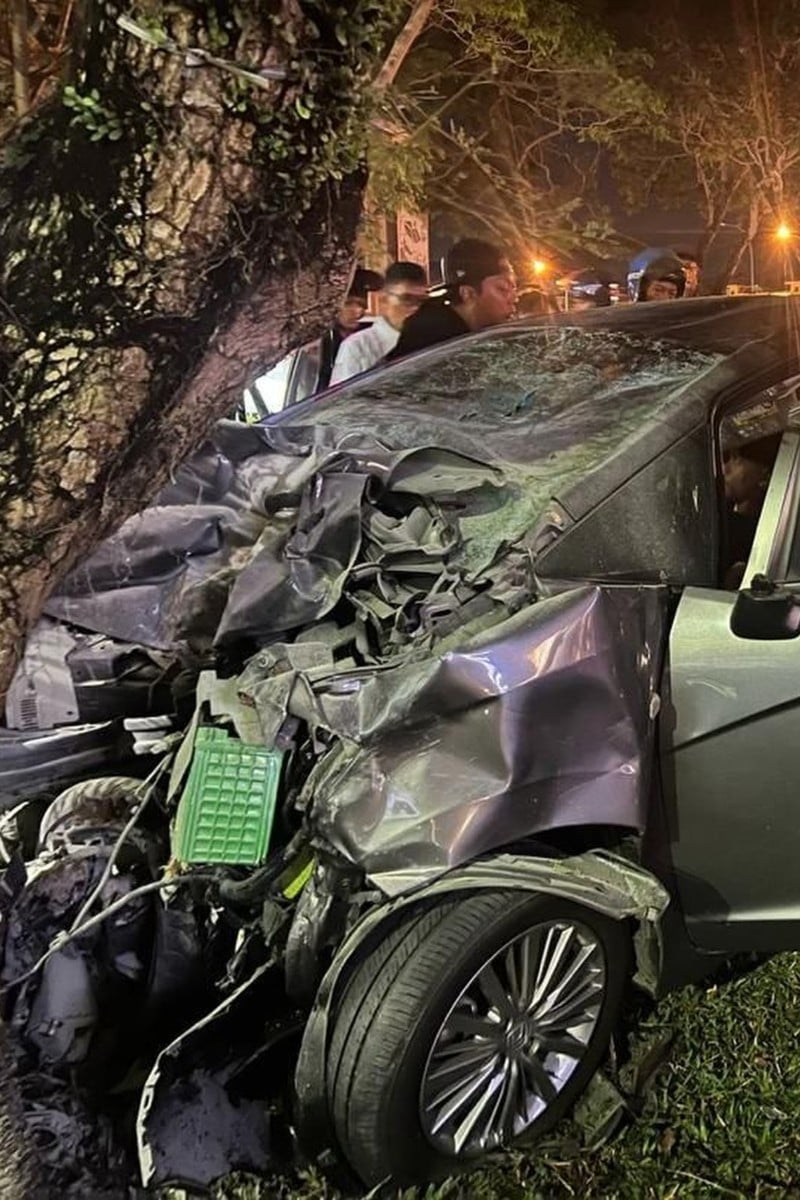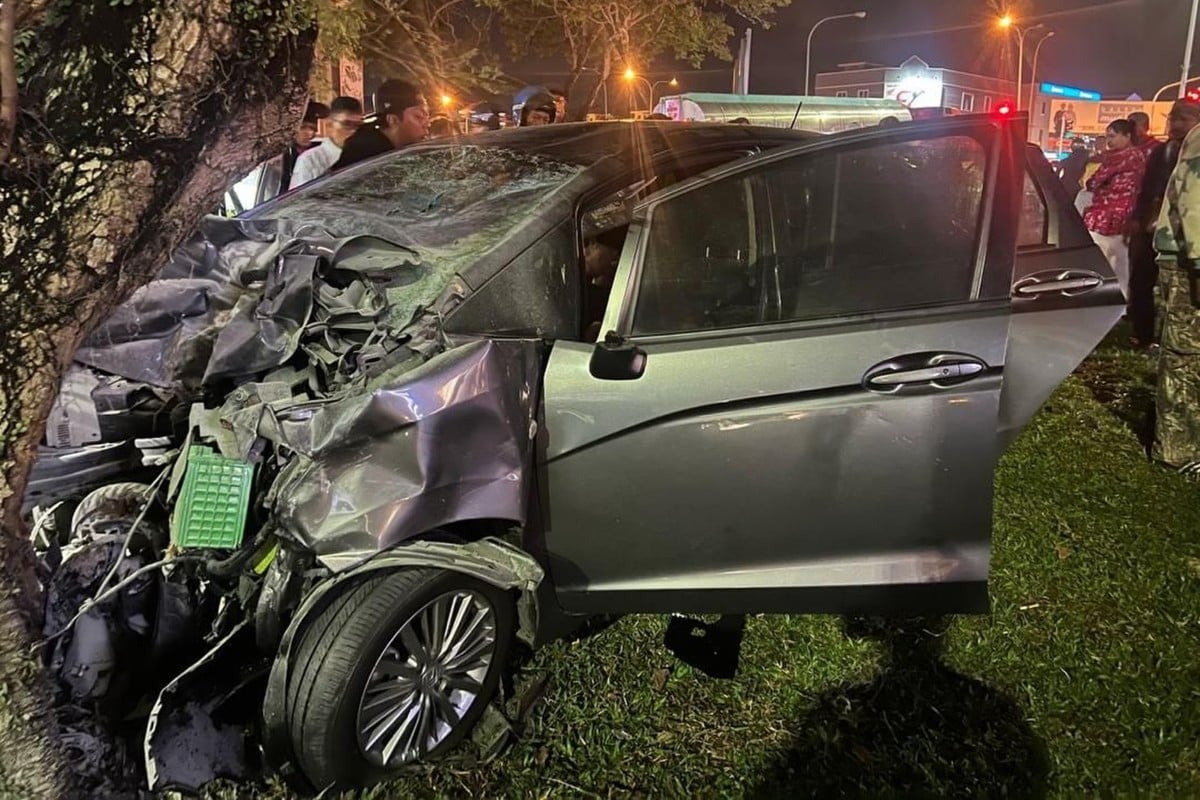
The Lens: After a fatal road accident in Malaysia, was this TikTok apology sincere?
Facing backlash, Nur Athirah Najwa, the sister of the teenage car driver involved, expressed remorse for not acknowledging those killed in the collision
 A collision in Senawang, Malaysia, killed two boys on the spot and left a third in a coma, who later died in hospital. Photo: Handout
A collision in Senawang, Malaysia, killed two boys on the spot and left a third in a coma, who later died in hospital. Photo: HandoutIf you are interested in being a regular contributor for The Lens, please apply by clicking this link.
Thoughts from last week
Tiffany Taw, 14, German Swiss International School
On March 6, an 18-year-old driver in Malaysia without a valid licence killed three teenage motorcyclists in a traffic accident. The driver’s sister, Nur Athirah Najwa, posted a video online admitting her brother’s involvement but pleaded that the public pray for his recovery instead of blaming him. She did not acknowledge the deaths caused by the crash.
This sparked criticism of the seeming lack of empathy for the families of those who died.
I agree with the public. Nur Athirah completely disregarded the innocent victims who lost their lives as well as their grieving families who are going through an extremely difficult time.
While I understand her concern for her brother, it was wrong to focus solely on his condition when families are mourning the deaths of their loved ones.
Additionally, regardless of intent, her brother was still the culprit of the accident; he should bear at least some responsibility for this tragic event.
While his sister had nothing to do with the incident, she should have expressed her condolences to the victims’ families.
Following the outrage, Nur Athirah uploaded another video apologising for her insensitivity. Many accused her of using this video to pacify the customers of her father’s business.
This reflects a broader issue that is becoming a trend on social media. Celebrities these days apologise after making mistakes – such as insensitive comments – simply to appease followers and fans and fix their reputation.
In reality, a verbal or written apology on its own is not enough to resolve problems. In this case, a Facebook user wrote, “Doing a [TikTok] live just to apologise will not bring back the dead”.
On the other hand, the public may have been too critical of her apology. There was no proof of insincerity or that she was only appeasing her father’s customers.
Read up on the issue in last week’s The Lens
Read and observe
French video game developer Ubisoft is receiving complaints in Japan for what critics claim are historical inaccuracies and the desecration of a Shinto shrine.
Assassin’s Creed Shadows is the first game in the series to be set in Japan. It takes place during the 15th and 16th centuries and allows users to play as a warrior called Yasuke, a real-life historical figure known in pop culture as the first Black samurai.
However, there is little surviving historical documentation of Yasuke’s life, including whether he was considered a samurai.
He is believed to have arrived in Japan from Mozambique with Portuguese priests around 1580 and later served Oda Nobunaga, a daimyo (feudal lord) known as a unifier of Japan.
Critics of the game argue that there is no evidence that Yasuke was a samurai warrior. They say a foreigner should not be a protagonist in a game about Japanese history.
Mathew Thompson, an associate professor of premodern Japanese literature at Tokyo’s Sophia University, said he believed the people offended by the game had fixed views.
“There are many groups in Japan that have [set] views of certain historical topics, and this pushes their buttons,” he said.
“These groups tend to take a conservative or even nationalistic approach to history,” he explained, adding that a game which took liberties with Japan’s past was bound to provoke their anger.
The developers have also been criticised for showing a real 1,400-year-old Shinto shrine in the game without contacting its caretakers.
Messages on social media called the depiction “offensive” to the Shinto religion.
“If you borrow Japanese culture and history for business, you need to respect it,” a comment on the Japanese newspaper Sankei’s website read.
“I think any country would find it insulting to see their temples being destroyed.”
Staff writers
Research and respond
-
Do you think the video game developers deserved this backlash? Why or why not?
-
How should the developers respond to the public’s comments?